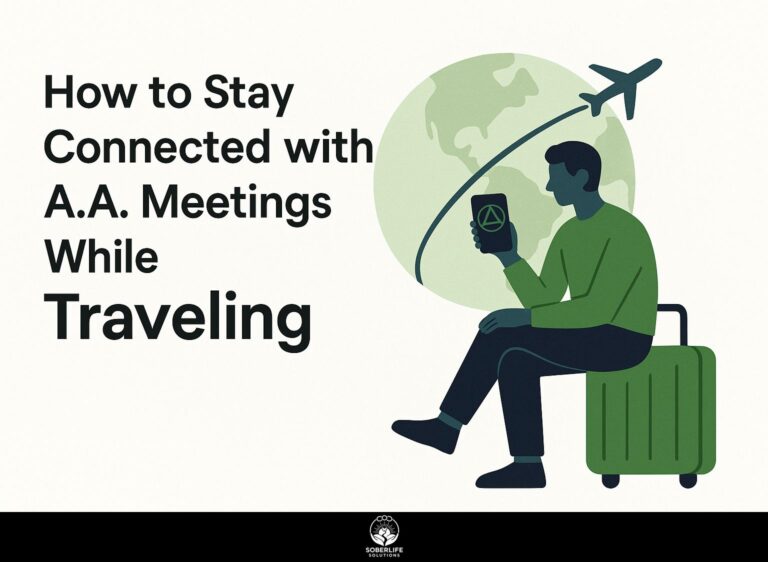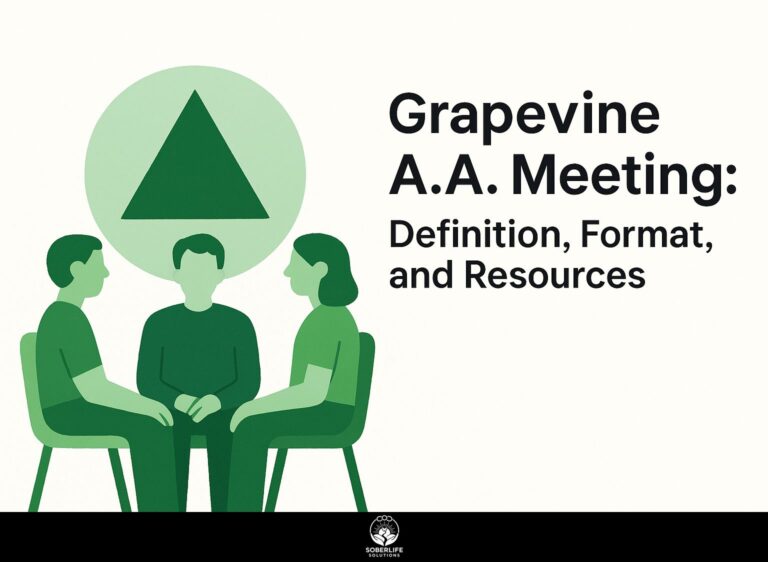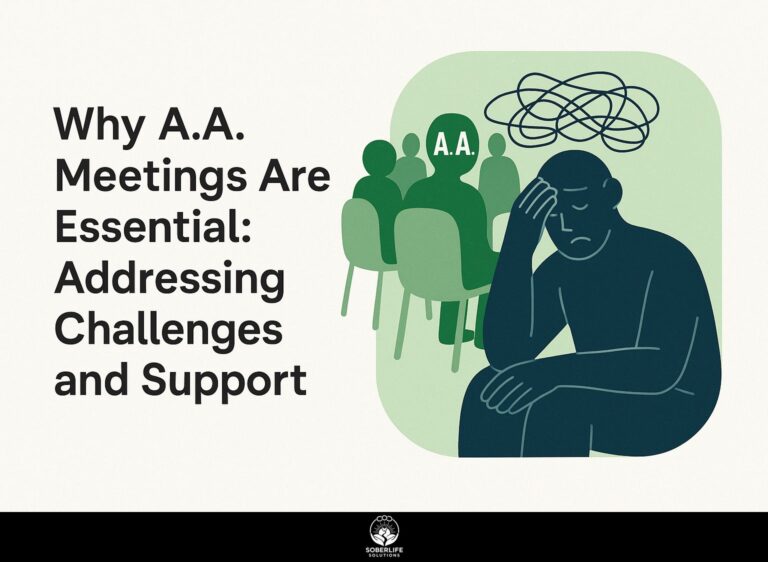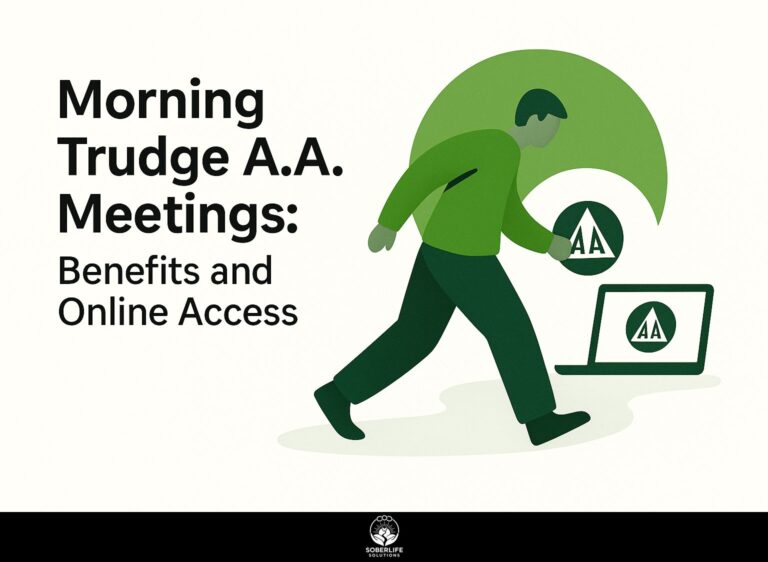Alcoholics Anonymous Anonymity: Importance, Guidelines, and Confidentiality
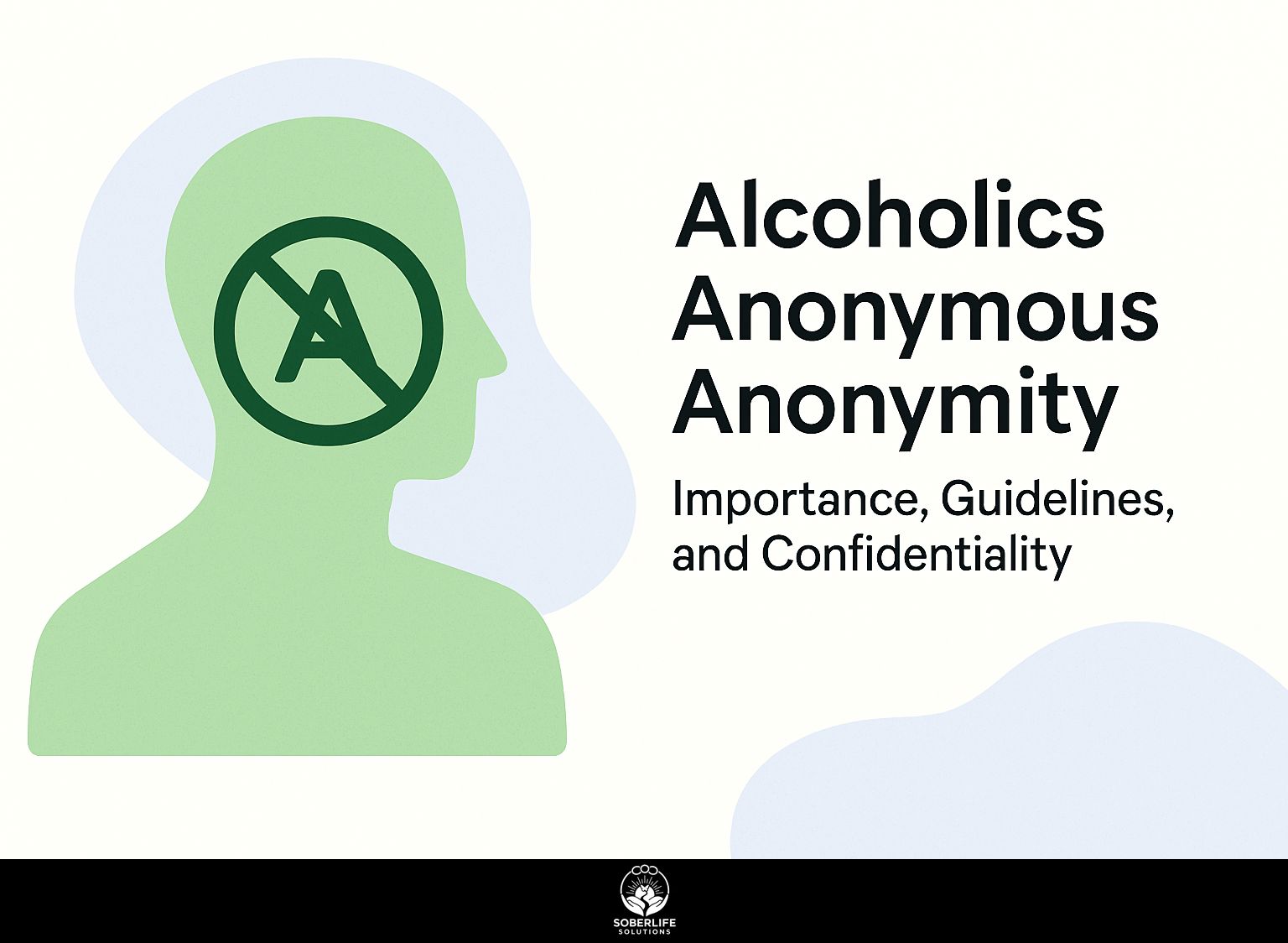
In Alcoholics Anonymous (A.A.), keeping identities private is key to creating a secure environment for recovery. Both personal and public anonymity allows A.A. members to talk about their experiences without worrying about being judged, especially in situations where media attention might compromise privacy. This article examines the importance of anonymity in Alcoholics Anonymous. It looks at the group’s rules and customs to show how these aspects build a supportive setting essential for recovery.
Key Takeaways:
The Concept of Anonymity in AA
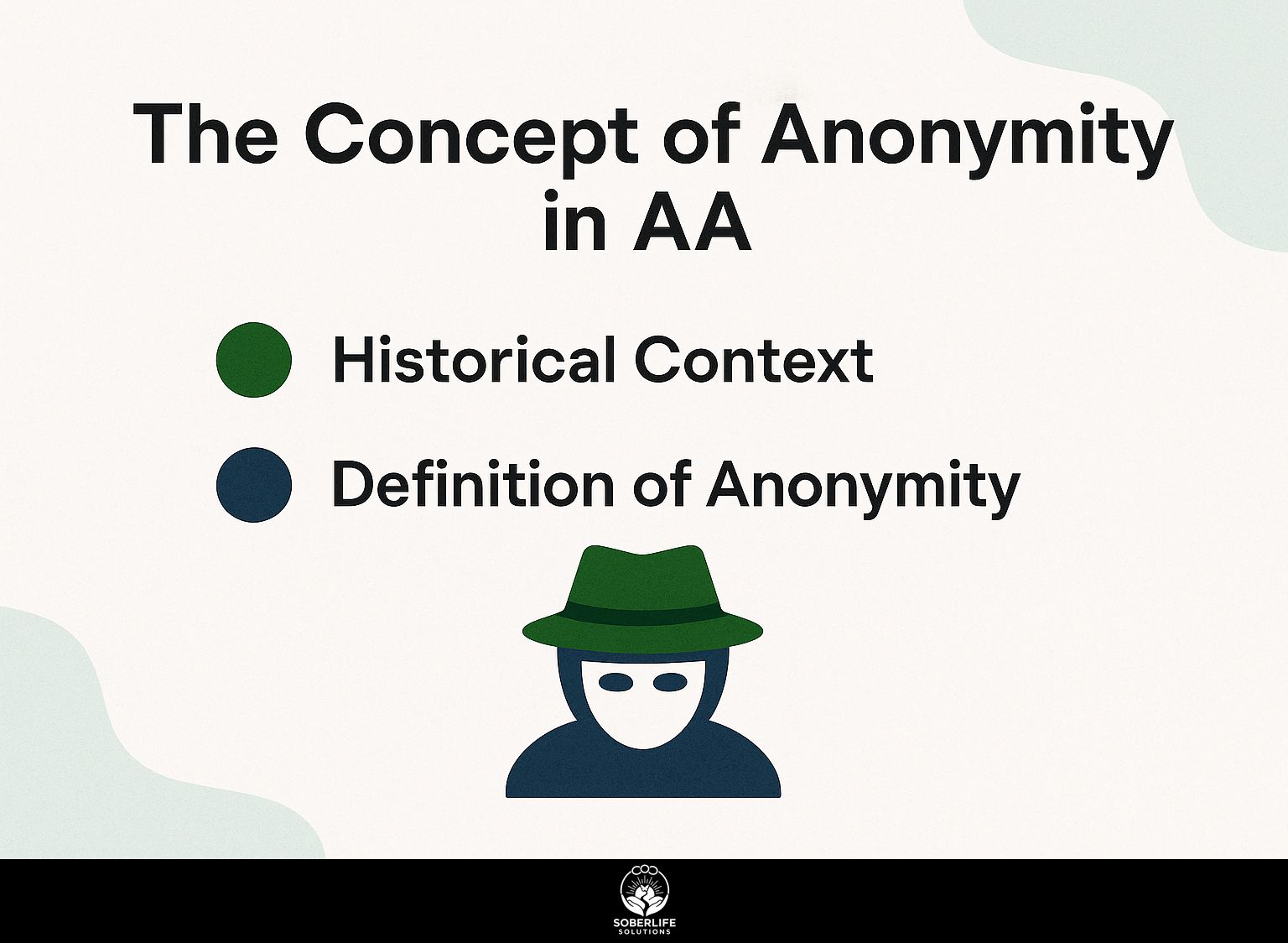
Anonymity is a key principle in Alcoholics Anonymous, strongly rooted in its Traditions 11 and 12, which stress the need for privacy both individually and publicly for members. To explore how these principles are upheld during meetings, you might find our deep dive into the various types of AA meetings, including speaker and Big Book meetings, particularly enlightening.
Historical Context
Anonymity in AA started when the group was founded, as the first members saw that keeping identities secret was important for safety and allowed people to be honest when talking about their recovery.
Initially, many members were hesitant to share their stories publicly due to societal stigma surrounding addiction. This fear led to the creation of strict anonymity rules, creating a space where people could share their thoughts without fear of criticism.
Over the years, as AA evolved, these principles were both upheld and challenged. Nowadays, people see anonymity as protection for individuals asking for support. It opens up more conversations about addiction, recovery, and personal identity, while stressing the need to respect the privacy of each participant. Those interested in engaging with AA more effectively might find our guide on Alcoholics Anonymous meetings and joining processes particularly useful. For those interested in a comprehensive overview, this analysis by Amazon covers the full spectrum of AA’s historical evolution.
Definition of Anonymity
Anonymity in Alcoholics Anonymous is defined as the practice of keeping the identities of members confidential, allowing individuals to engage in recovery without fear of stigma or public exposure.
This approach keeps personal information safe and creates a welcoming space for members to share freely.
Finding the right mix between keeping personal stories confidential and allowing the group’s experiences to be seen is important. According to research published by Taylor & Francis, anonymity in group support systems enhances engagement, which is vital in helping the organization stay strong.
AA stresses that when members discuss their challenges, they speak as part of the group’s message, not as individuals, keeping the focus on recovery instead of personal identity.
Importance of Anonymity
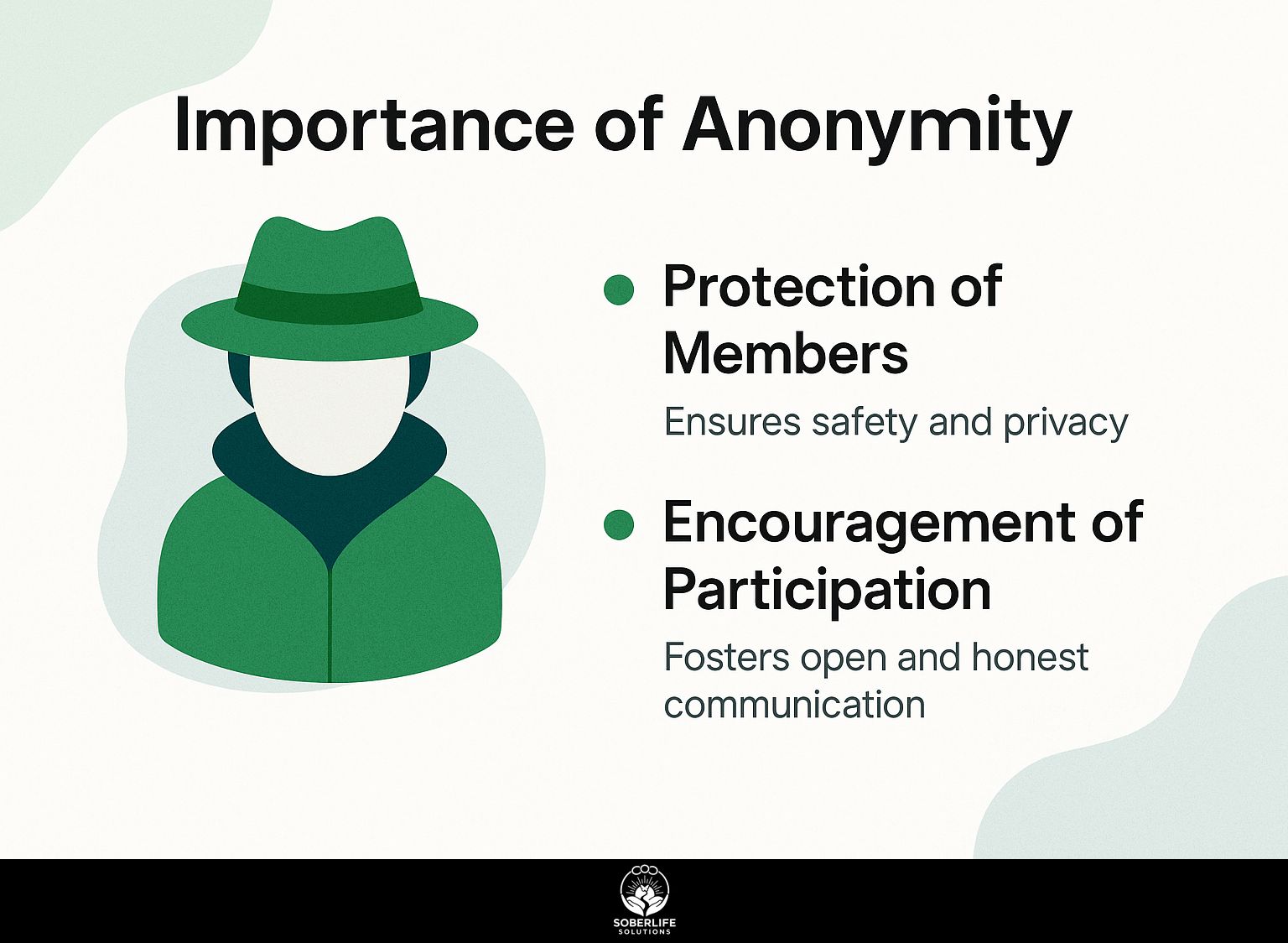
Anonymity is very important in AA because it protects members and creates a space where all can freely join in.
Protection of Members
Anonymity acts as a protective shield for members, ensuring that their personal struggles with alcoholism remain confidential, thereby reducing the risk of social stigma.
This confidentiality is paramount in programs like Alcoholics Anonymous (AA), where members share deeply personal stories. Breaches of anonymity can lead to individuals feeling vulnerable and withdrawing from the program.
For instance, cases where members’ stories were publicly shared have resulted in significant emotional distress and disengagement from support networks. AA emphasizes its confidentiality guidelines, instructing members to refrain from sharing others’ experiences outside meetings.
Following these rules helps members feel safe, encouraging honest talks and stronger bonds.
Encouragement of Participation
By keeping identities private, AA helps new members feel comfortable sharing their experiences, which strengthens group interactions and builds a feeling of connection among members.
This supportive environment lowers barriers for participation, as members feel less judged and more free to express vulnerabilities.
Consider the case of John, a newcomer who initially hesitated due to fear of stigma. Through anonymous sharing, he gradually opened up about his struggles with alcohol. Over time, he received a lot of help and motivation from people who had gone through similar difficulties, which eventually helped him recover successfully.
John’s experience highlights how anonymity can create a safe space for personal growth and connection, facilitating a stronger community.
Guidelines for Maintaining Anonymity
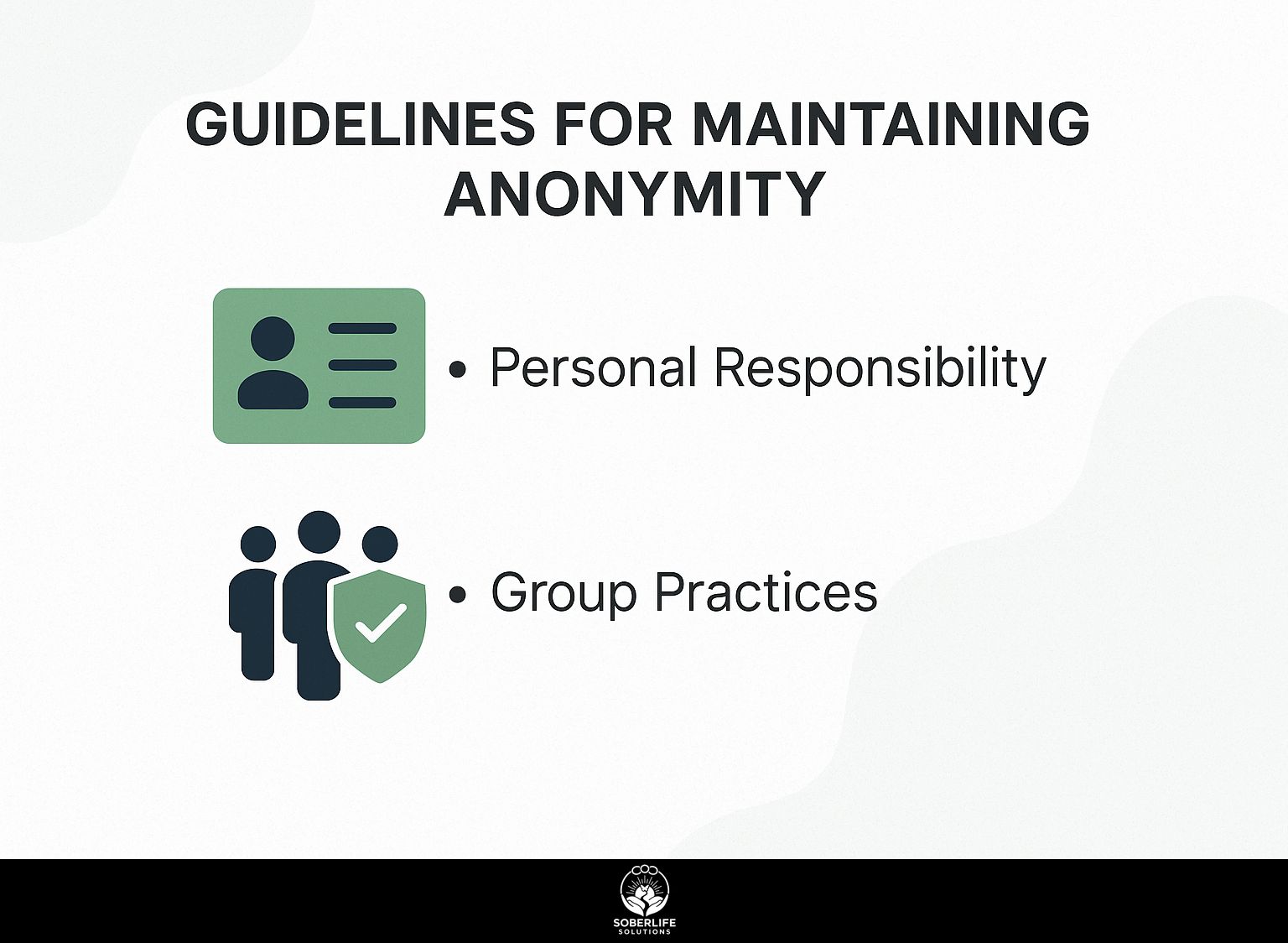
Alcoholics Anonymous asks its members to follow certain rules to protect anonymity, focusing on individual duty and group actions. To further support these efforts, you can review the OIAA Safety Resources: Overview and Key Guidelines, which provide comprehensive measures for maintaining a secure environment.
Personal Responsibility
Each person in AA has a duty to protect the privacy of others, building trust and honesty in the recovery group.
To maintain this essential anonymity, members should take specific actions:
- Avoid sharing personal stories or details that could identify others, particularly in discussions outside of meetings.
- Use first names only and refrain from discussing members’ attendance or involvement publicly.
- It’s important to keep private information safe in group chats or on social media. Don’t share screenshots or personal details.
These practices make it easier for everyone to share, building a friendly and helpful environment for all involved in recovery.
Group Practices
Groups are encouraged to adopt practices that reinforce anonymity, such as the use of a group conscience to handle any breaches and to establish clear confidentiality guidelines.
To strengthen anonymity, groups should regularly discuss the importance of confidentiality, encouraging open dialogue about any concerns. Establish a standard protocol for addressing sensitive issues; for instance, implement a system where members anonymously submit any grievances or breaches to a designated trusted person.
Use clear language when discussing topics, avoiding specifics that might identify individuals. Consider establishing a non-disclosure agreement (NDA) for participants to further emphasize the value of confidentiality.
By creating a setting where people trust each other and are responsible, groups can safeguard the privacy of their members more effectively.
Confidentiality in AA Meetings
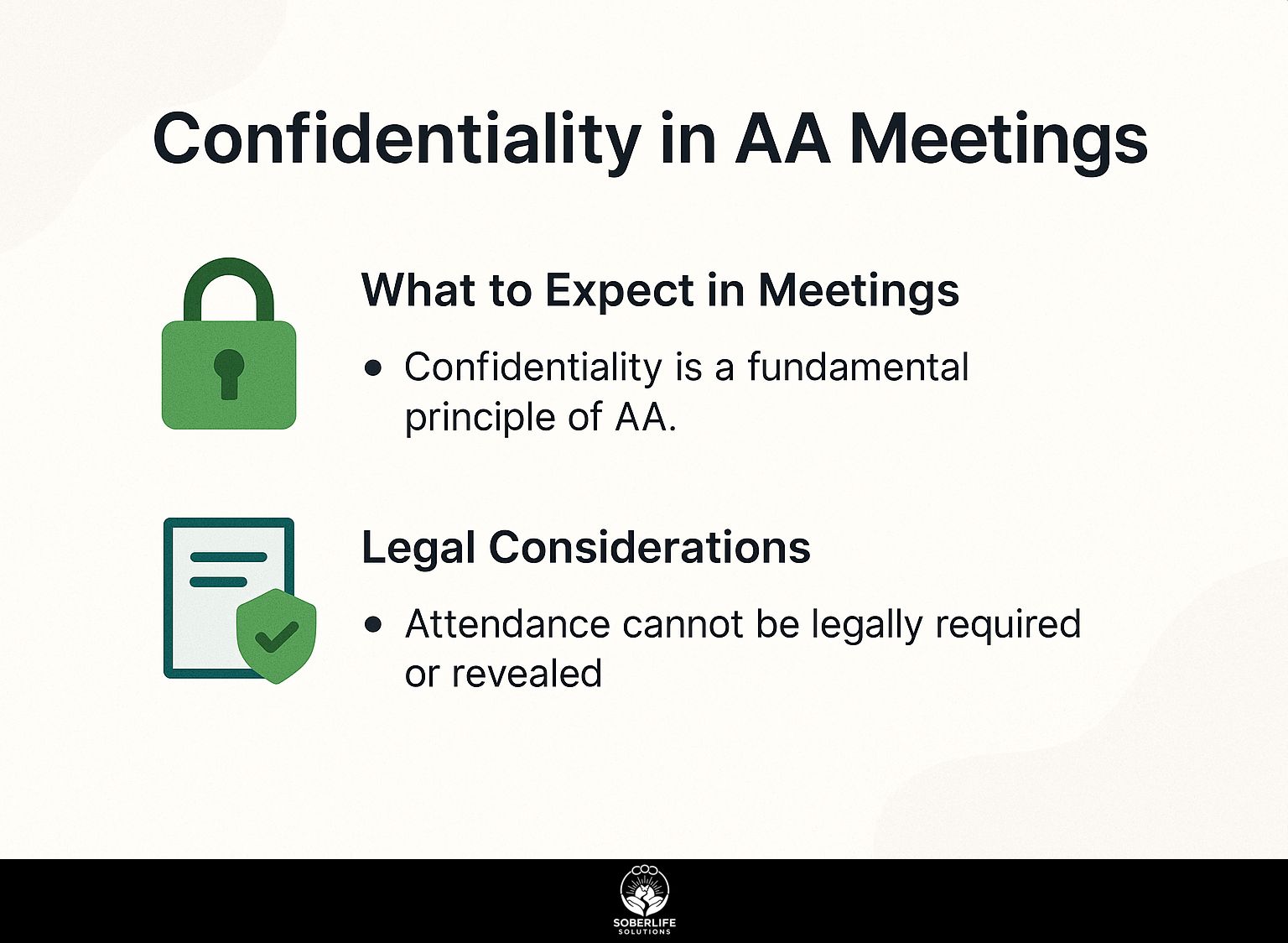
Confidentiality in AA meetings is extremely important. It allows members to openly share their experiences without worrying about consequences, while following legal requirements. Understanding the different aspects of AA meetings can further enhance the experience for newcomers, ensuring they feel secure and supported.
What to Expect in Meetings
Members can expect a nurturing environment in AA meetings where confidentiality is respected, allowing open discussions about personal experiences with alcoholism.
AA meetings are organized so everyone feels at ease sharing their experiences. Each meeting typically begins with an opening statement emphasizing the importance of anonymity, encapsulated in the commonly cited principleWhat is said here, stays here.”
Trusted tools like ‘The Twelve Traditions’ reinforce this commitment, guiding members to practice mutual respect. Many participants attest to feeling liberated in sharing their struggles without fear of judgment, as one member stated, “Knowing that my story stays within the room allows me to be truly honest and helps me heal.”
Legal Considerations
Knowing the legal factors about confidentiality in AA meetings is important for protecting members’ privacy and preventing legal problems.
- Two critical laws to consider are HIPAA, which mandates the privacy of health information, and state-specific confidentiality statutes. According to the U.S. Department of Health and Human Services, HIPAA provides comprehensive guidelines concerning the protection of health information.
For example, HIPAA prevents unauthorized disclosure of health records, reinforcing AA’s practice of anonymity. Members are encouraged to share personal experiences without fear of exposure, ensuring a safe environment.
Many states have laws protecting the confidentiality of addiction treatment records, further safeguarding participants.
The traditions of AA stress the importance of keeping identities private, which helps keep personal stories secret within the group. This builds trust among members.
Challenges to Anonymity
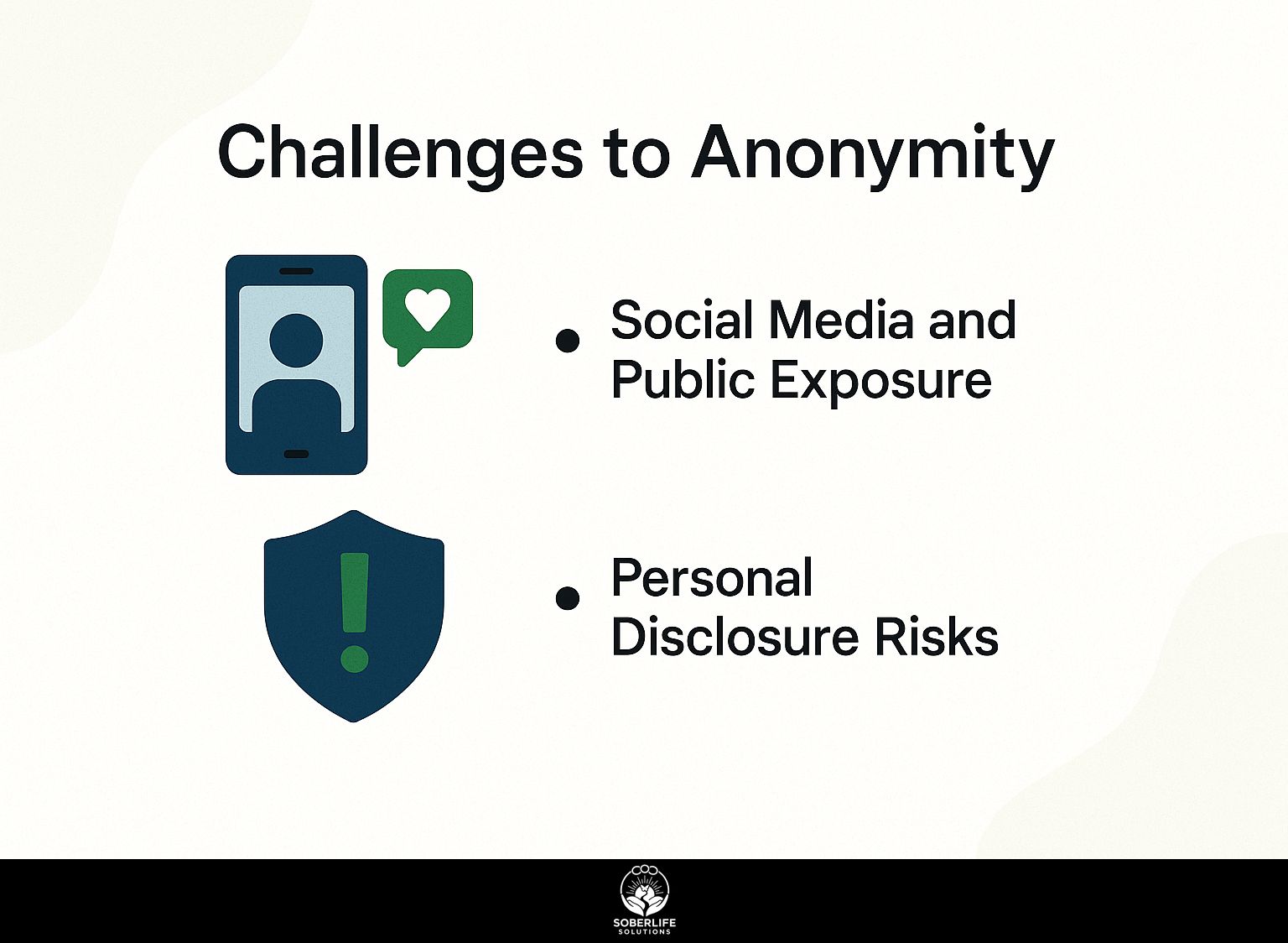
Keeping identities private in AA is very important, but it’s becoming harder because people use social media more and might share private details. This challenge underscores the importance of understanding the diverse Alcoholics Anonymous meeting types where anonymity is a core principle, helping members feel secure in their recovery journey.
Social Media and Public Exposure
Social media platforms pose a unique challenge to anonymity in AA, as members may inadvertently expose their identities through shared posts or comments.
To use social media safely, follow these tips:
- Always use a pseudonym when creating accounts.
- Adjust privacy settings to limit who can view your posts.
- Be mindful of what you share. For instance, avoid posting images that reveal your location or personal details.
Employing encrypted messaging apps like Signal can help maintain discussions within trusted circles without risking exposure. Teaching people about privacy settings on various platforms helps them participate while keeping their identities private.
Personal Disclosure Risks
Personal disclosures made in meetings carry inherent risks, particularly if members fail to maintain confidentiality outside the group setting.
To keep their identities private, members should use various methods.
- Set clear ground rules for confidentiality at the beginning of each meeting. Emphasize the importance of discretion and respect among participants.
- Encourage the use of pseudonyms for sensitive discussions, allowing members to share freely without fear of personal exposure.
- Consider using secure platforms like Zoom with password protection and waiting rooms, ensuring that participants feel safe in sharing their experiences.
These precautions can significantly mitigate the risks associated with personal disclosures.
Frequently Asked Questions
What is the importance of anonymity in Alcoholics Anonymous?
Anonymity is important in Alcoholics Anonymous because it lets people feel safe when talking about their experiences and problems with addiction without being afraid of being judged or facing negative consequences. It also helps to protect the privacy of members.
What are the guidelines for maintaining anonymity in Alcoholics Anonymous?
The guidelines for maintaining anonymity in Alcoholics Anonymous include refraining from sharing personal information about other members outside of meetings, avoiding press or media coverage, and respecting the anonymity of others.
Why is confidentiality important in Alcoholics Anonymous?
Confidentiality is important in Alcoholics Anonymous because it builds trust and promotes an environment of honesty and openness. It also allows individuals to share without fear of their personal struggles being shared outside of the group.
What happens if someone reveals a member’s identity in Alcoholics Anonymous?
Losing privacy in Alcoholics Anonymous can cause trust problems for members and may lead to legal and ethical consequences. It can also hinder the recovery process of individuals who may feel exposed or vulnerable.
Are there any exceptions to the anonymity rule in Alcoholics Anonymous?
Yes, there are a few exceptions to the anonymity rule in Alcoholics Anonymous. These include sharing one’s personal experience at a public or media event with prior approval from the group, and discussing one’s membership in the program with a therapist or healthcare professional.
How can I keep information private in my local AA group?
To keep things private in your local AA group, always respect people’s privacy, avoid talking about personal details outside of meetings, and remind others how important it is to keep things confidential. You can also discuss any concerns with your group’s leader or sponsor.

